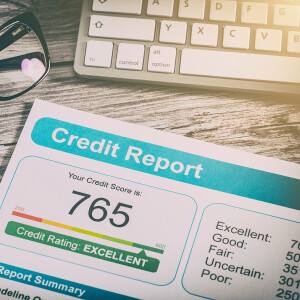

Keeping your credit score in good standing is a great way to dramatically reduce the amount of interest you pay on a mortgage and other loans. But.. how? How do we get our credit score up to a number we can be proud of? Well, today, you're going to find out.
Links:
- Check out TCU University for financial education tips and resources!
- Follow us on Facebook, Instagram and Twitter!
- Learn more about Triangle Credit Union
Transcript:
Welcome to Money Tip Tuesday from the Making Money Personal podcast.
Do you ever look at someone who has done something remarkable? Something that may take you forever to complete? Guess what? They didn't do that amazing thing overnight. It may have taken them months or, more likely, years before you saw the result. Overnight success is not something that happens often.
Building a solid credit score and profile is a long-term investment in your financial future, much like the remarkable achievements you admire in others.
It will take time, effort, and, most importantly, responsibility to get a credit score that will get you the lowest interest rates and terms on loans should you ever need them. Responsibility is the key to unlocking the potential of your credit score and securing a better financial future.
In this tip, I am going to share with you five ways to help improve your credit score:
Never miss a due date.
Paying your bills on time is the golden rule for maintaining a good credit score. Your payment history will show whether or not you have paid your bills on time, and this is a significant factor that plays into your credit score. Missing a due date can lead to late fees, increased interest rates, and a negative impact on your credit score. Enroll in auto-pay to ensure your payments are automatically deducted from your checking account, guaranteeing they will not be late. When doing this, just remember to ensure there are sufficient funds in your checking account so you don’t get charged overdraft fees.
Keep Your Balances Low.
If you have a credit card or another form of a Line of Credit, be sure to use only a portion of the available credit that has been extended to you. A general rule of thumb is to use no more than 30% of your credit line. So, for example, if you have a credit card with a $1,000 line of credit, a good rule is not to use more than $300.00 of that limit. This is referred to as your credit utilization, and it is another factor that influences your credit score.
If you need to stop, stop, but don't close.
The older we get, the more mature and trustworthy we should become throughout our lives. The same goes for credit. If you have four credit cards and the first one you have is 4 years old, and the rest are 1 or 2 years old, Let's say you close the first one you got because there are no benefits associated with using it; you will reduce the avg age of your credit profile. The longer the average age, the better because it shows you have experience managing debt, and it gives lenders a more extended history to examine when considering a loan for you.
Don't Apply for Everything Thrown Your Way
As you develop credit, you will be thrown offers left and right from lenders saying you are pre-approved or pre-qualify for their products. When you apply, your credit score will be affected, and the inquiry will remain on your credit report for 12-24 months. So, only apply for lines of credit or loans that you truly need and can use responsibly. Try to space out the times you apply by at least one year. But it's even better if you wait longer.
Be Well Rounded
To be particularly attractive to lenders, it is beneficial to have experience with various types of credit. For instance, having a mix of credit cards, student loans, and a mortgage can demonstrate your ability to manage different types of debt responsibly. It’s okay to have a variety of debts, and can actually help boost your score a bit.
And there you have it.. 5 ways to improve your credit score.
To recap, the five ways are:
- Never Miss a Due Date
- Keep Your Balances Low
- Don't Close Your Credit Cards
- Don’t apply for everything thrown your way
- Be Well Rounded.
If there are any other tips or topics you'd like us to cover, let us know at tcupodcast@trianglecu.org. Also, remember to like and follow our Making Money Personal Facebook and Instagram to share your thoughts. Finally, remember to look for our sponsor, Triangle Credit Union, on Facebook and LinkedIn.
Thanks for listening to today's Money Tip Tuesday. Check out our other tips and episodes on the Making Money Personal podcast.
More Episodes
All Episodes>>Create Your Podcast In Minutes
- Full-featured podcast site
- Unlimited storage and bandwidth
- Comprehensive podcast stats
- Distribute to Apple Podcasts, Spotify, and more
- Make money with your podcast












